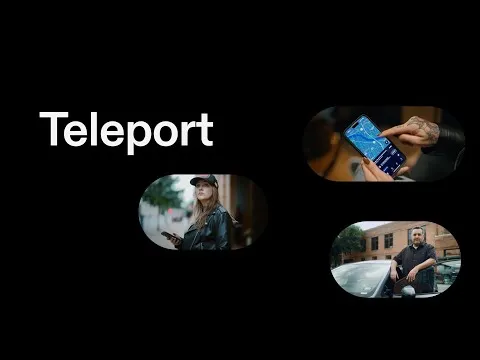Back in early 2022, Uber CEO Dara Khosrowshahi told Bloomberg that the company is intent on accepting Bitcoin and other cryptocurrencies as payment, under the caveat that it "becomes more environmentally friendly" and that transaction fees come down.
More than two years have passed since then, Bitcoin fees have dropped, there are plenty of environmentally friendly alternatives, and Khosrowshahi is still saying that Uber will be integrating cryptocurrency payments "in the near future".
In this article, we are going to cover the problem with Uber, along with a couple of decentralized alternatives that may end up replacing the company entirely, regardless of whether or not they decide to adopt crypto payments.

Technology Disrupts, Constantly
Starting in 2011, Uber began gobbling up marketshare from the ride-hailing industry as it spread quickly across North America. Funnily enough, it is now a little over a decade later, and Uber itself is facing disruption from emerging decentralized alternatives. What is their weakness?
Uber acts as a middle-man between drivers and riders, collecting a hefty commission fee for the service of matching them together. A convenient service indeed, but what if the drivers and riders could strike deals with each other directly, on a decentralized and open marketplace?
Enter Web 3.0 competitors like DRIFE and Teleport, which eliminate intermediaries like Uber, and enable a peer-to-peer marketplace for drivers and riders.
DRIFE
Currently operating in India and Dubai, DRIFE is a blockchain-based ride-hailing marketplace that cuts out the commissions taken by middle-men like Uber.
Drivers earn the DRF token for each kilometer traveled during a ride. The token can then be used for discounts on rides and to pay for subscriptions.
While a promising idea, DRIFE is still in its early stages. They just finished migrating their token from Binance Smart Chain (BSC) to the SUI blockchain.
Teleport
A DePIN project built on the high-throughput Solana blockchain, Teleport's mission is to eliminate intermediaries like Uber while reducing rider costs, and increasing driver revenue.
Users earn TRIP miles by driving or riding, and use those miles to claim TRIP rewards - digital collectibles on the Solana blockchain.
Riders can only pay by credit/debit card for now, but the team will add support for other payment methods like stablecoins in the future.
The Future Of Ridesharing
The above are just two examples of decentralized ride-hailing alternatives that could take market share from Uber. No doubt, if their token models turn out to be successful, more projects will launch to compete alongside them.
In an ideal world, these ride sharing marketplaces would operate entirely on their own native tokens, without the need for traditional debit/credit cards or stablecoins.
Ultimately, even if Uber were to start accepting first generation cryptocurrencies like Bitcoin, their service may be entirely replaced by these more efficient crypto-native Web 3.0 competitors.
If you found this article interesting, be sure to check out my other posts on crypto and finance here on the HIVE blockchain. You can also follow me on InLeo for more frequent updates.
Until next time...
Resources
Image Generation Courtesy of Venice AI [1]
Teleport Frequently Asked Questions [2]
